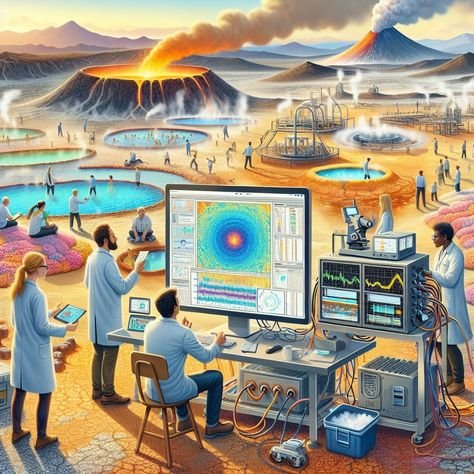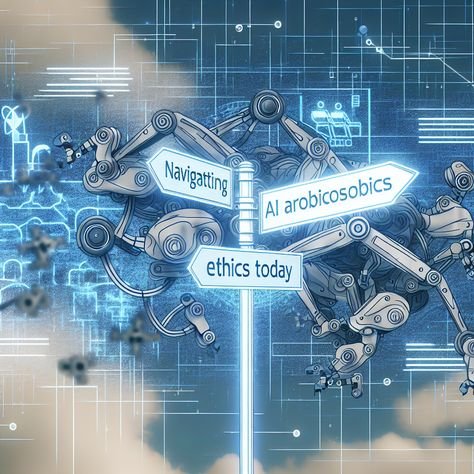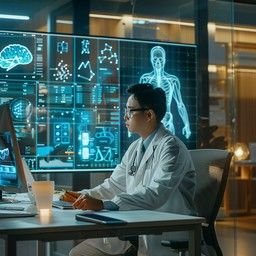The rapid advancement of artificial intelligence (AI) has transformed various industries, and the healthcare sector is no exception. Among the many professions impacted, AI will replace lab techs has become a heated topic of discussion. This article explores how AI is revolutionizing laboratory operations, the potential benefits, and the challenges of this transformative shift.
Table of Contents
Why AI Will Replace Lab Techs in Modern Laboratories
Laboratories are hubs of data-driven analysis, where precision and efficiency are paramount. With AI’s ability to process vast amounts of information quickly and accurately, it’s no surprise that AI will replace lab techs in many routine and complex tasks. AI’s capabilities to learn, adapt, and execute tasks reduce human error and significantly enhance productivity.
How AI Is Reshaping Laboratory Operations
Automation of Routine Tasks
One of the primary reasons AI will replace lab techs is its proficiency in automating routine tasks. Processes such as sample analysis, data entry, and result interpretation, which traditionally required manual intervention, are now efficiently handled by AI systems. Automated systems, such as robotic arms, coupled with AI algorithms, ensure consistent and error-free operations.
Enhanced Diagnostic Accuracy
AI-powered diagnostic tools outperform traditional methods by identifying patterns that might elude human technicians. This capability ensures that AI will replace lab techs for tasks requiring high precision, such as genetic testing and disease detection. Algorithms trained on extensive datasets can provide quicker and more accurate results, benefiting patients and healthcare providers alike.
Real-Time Data Processing
The ability to process data in real-time is another reason why AI will replace lab techs in laboratories. AI systems can analyze and interpret results instantly, allowing for faster decision-making. This speed is especially critical in emergency situations where timely diagnosis can save lives.
Benefits of Replacing Lab Techs with AI
Improved Efficiency
AI systems work tirelessly without the need for breaks or downtime, ensuring that laboratories operate at peak efficiency around the clock. This continuous operation is a key factor in why AI will replace lab techs in the near future.
Cost Reduction
By automating tasks traditionally performed by human lab technicians, laboratories can significantly reduce labor costs. Although initial investment in AI technology can be substantial, the long-term savings make the transition worthwhile.
Consistency and Standardization
Unlike human technicians, AI systems perform tasks with consistent accuracy, eliminating variability. This uniformity ensures that AI will replace lab techs to maintain high standards in laboratory operations.
Challenges of AI Replacing Lab Techs

Ethical Concerns
The notion that AI will replace lab techs raises ethical questions about job displacement and the human cost of technological progress. Striking a balance between leveraging AI’s potential and preserving employment opportunities is a pressing challenge.
Dependence on Technology
As laboratories become increasingly reliant on AI, the risk of system failures and cyberattacks also grows. Ensuring robust security measures and backup systems is crucial as AI will replace lab techs in critical operations.
Skill Gaps
The integration of AI requires technicians to adapt to new roles, such as overseeing AI systems and troubleshooting issues. Investing in training and education will be essential as AI will replace lab techs in traditional roles.
Real-World Examples of AI in Laboratories
AI in Pathology
AI tools like digital pathology platforms are already transforming how samples are analyzed. By automating image recognition and analysis, these tools demonstrate how AI will replace lab techs in identifying diseases such as cancer.
Genetic Testing
The advent of AI-powered genetic testing platforms is another instance where AI will replace lab techs. These systems analyze genetic data more quickly and accurately than manual methods, advancing personalized medicine.
Drug Development
AI’s role in drug discovery highlights its potential to replace traditional lab processes. Machine learning algorithms accelerate the identification of potential compounds, underscoring why AI will replace lab techs in research labs.
The Role of Lab Techs in an AI-Driven Future
While AI will replace lab techs in many areas, it doesn’t mean the end of the profession. Instead, lab technicians will transition into roles that require oversight of AI systems, data interpretation, and innovative problem-solving. These evolving roles emphasize collaboration between humans and machines.
Preparing for the AI Revolution in Laboratories
Upskilling and Education
To stay relevant as AI will replace lab techs, professionals must embrace continuous learning. Acquiring skills in AI management, programming, and data analytics will be crucial for adapting to the changing landscape.
Embracing Collaboration
Rather than viewing AI as a threat, laboratory professionals should consider it a tool for collaboration. Understanding how AI complements human expertise will ensure a seamless transition as AI will replace lab techs.
Regulatory Considerations

Governments and regulatory bodies must establish guidelines to ensure the ethical use of AI in laboratories. Addressing concerns such as data privacy and accountability will be critical as AI will replace lab techs in sensitive operations.
Also read Can an Adopted Child Have Positive Behaviors Like Tickling: Exploring Attachment and Joy
Conclusion: A Balanced Perspective
The idea that AI will replace lab techs reflects the inevitable evolution of technology in laboratories. While AI’s capabilities are undeniable, the human element remains indispensable for overseeing and innovating within the field. By embracing this shift and preparing for the future, laboratory professionals can ensure that they continue to play a vital role in an AI-driven world.


